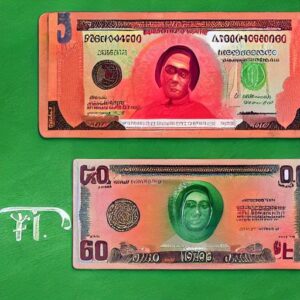What is a digital rupee?
A digital rupee is a form of digital currency that is issued and backed by the government of India. It is intended to function as a digital version of physical cash and can be used for various transactions, such as paying bills or buying goods and services. The digital rupee is created and managed by the Reserve Bank of India (RBI) and is intended to complement, rather than replace physical cash. Transactions using digital rupees are recorded on a digital ledger, similar to the way that transactions using traditional bank-issued digital currencies are recorded on a bank’s ledger. It can be accessed and transferred through digital means like mobile banking, internet banking, UPI, etc. The main idea behind the digital rupee is to increase the efficiency and security of financial transactions and to promote financial inclusion.

How does digital rupee work?
A digital rupee is a form of digital currency that is issued and backed by the government of India. It is intended to function as a digital version of physical cash and can be used for various transactions, such as paying bills or buying goods and services. The digital rupee is created and managed by the Reserve Bank of India (RBI) and is intended to complement, rather than replace physical cash. Transactions using digital rupees are recorded on a digital ledger, similar to the way that transactions using traditional bank-issued digital currencies are recorded on a bank’s ledger.

Why the digital rupee?
There are several reasons why the government of India is exploring the use of the digital rupee. One reason is to increase financial inclusion, as many people in India do not have access to traditional banking services. A digital rupee could allow them to participate in the digital economy and conduct transactions without the need for a bank account.
Another reason is to reduce the amount of physical cash in circulation, which can be costly to produce and distribute and can also be subject to fraud and money laundering. A digital rupee would allow for more secure and efficient transactions.
Additionally, a digital rupee could also help to improve the tracking of financial transactions and make it easier for the government to detect and prevent tax evasion and other financial crimes.
Finally, it could also be a step towards reducing the use of physical cash, which could help to reduce the transmission of COVID-19 as physical cash is known to be the carrier of the virus.

How it is different from UPI
UPI (Unified Payments Interface) is a real-time payment system developed by the National Payments Corporation of India (NPCI) that facilitates inter-bank transactions by instantly transferring funds between two bank accounts on a mobile platform. It is a platform that allows for instant money transfer between any two bank accounts by using a virtual payment address.
The digital rupee, on the other hand, is a digital version of the physical currency issued by the Reserve Bank of India (RBI) that can be used to make transactions in the same way as physical cash. The main difference between UPI and the digital rupee is that UPI is a payment system that facilitates the transfer of funds between bank accounts, while the digital rupee is a digital version of the physical currency.
In other words, UPI is a payment infrastructure that enables you to transfer money from one bank account to another, while the digital rupee is a digital currency that can be used for various transactions, such as paying bills or buying goods and services.
UPI can be used to transfer digital rupees but digital rupees can also be used offline, in places where UPI transactions are not possible or feasible, like small shops, street vendors, etc.
#DigitalRupee #FinancialInclusion #RealTimePayments #UPI #EfficiencyAndSecurity #RBI

